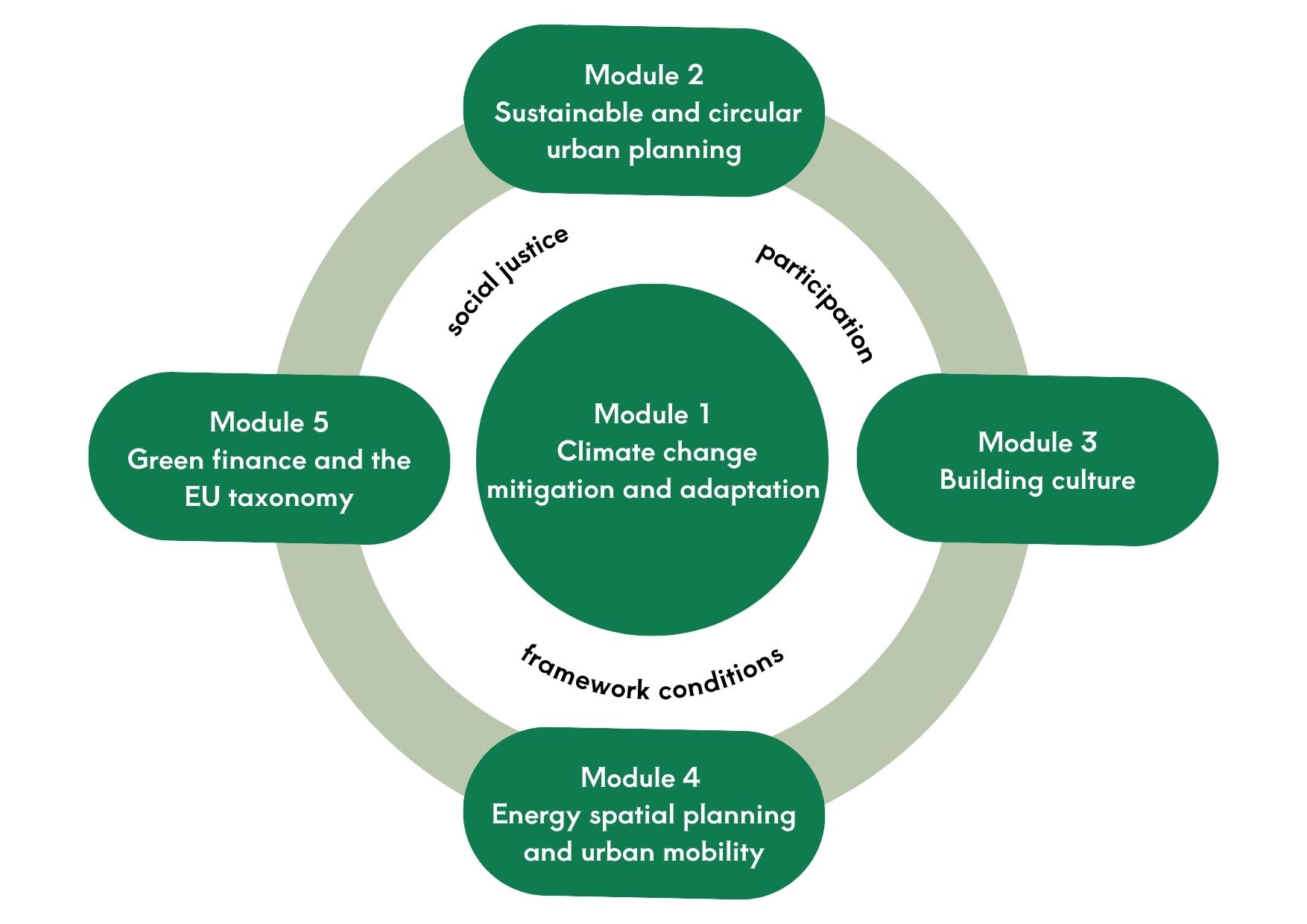KLIK - Qualification program for climate-competent cities
Short Description
Starting point / motivation
Cities and municipalities in Austria and worldwide face the challenge of significantly reducing their emissions while simultaneously addressing the already tangible impacts of climate change to ensure a climate-resilient future. Despite existing local climate change mitigation and adaptation plans, implementation often faces obstacles due to a lack of expertise, insufficient networking, and inadequate funding.
Contents and goals
The KLIK project aims to raise awareness and provide further training for administrative staff in climate pioneer cities on climate change mitigation and adaptation measures. This project seeks to achieve four main objectives:
- Raising awareness and providing training for as many administrative staff as possible: Training employees across all administrative departments to enhance their awareness of the challenges and opportunities related to climate change mitigation and adaptation.
- Promoting inter- and transdisciplinary thinking within administration: Integrating climate change mitigation and adaptation as cross-cutting issues into all administrative areas to ensure that staff incorporate these topics into their daily work.
- Developing practical skills: Providing best-practice examples and applicable knowledge to facilitate the concrete implementation of climate change mitigation and adaptation measures in urban areas.
- Leveraging the experience of climate pioneer cities: Utilizing the leading role of climate pioneer cities to translate their experiences into practical training content. This knowledge can be applied within their own administrations as well as in other cities, fostering knowledge transfer and accelerating the implementation of climate change mitigation and adaptation measures.
Methods
The training needs are addressed through the development of a modular training program tailored to the specific requirements of urban areas. It includes the following five modules:
The modules are designed in digital formats, allowing administrative staff to engage in flexible and interactive learning. By incorporating proven best practices and the experiences of climate pioneer cities, the program provides concrete action strategies for urban areas.
Expected results
This educational program empowers administrative staff to actively shape necessary changes and make their cities climate-resilient and future-proof. Through digital learning formats, the program ensures high scalability beyond the project's duration, enabling broad and long-term impact.
Project Partners
Project management
Wegener Center for Climate and Global Change, University of Graz
Project or cooperation partners
- University of Graz, Institute of Philosophy and Institute of Environmental System Sciences
- FH JOANNEUM; Institute of Energy, Transport and Environmental Management
- TU Vienna, future.lab
- Environment Agency Austria
- State capital of Graz
- State capital of St. Pölten
- State capital of Innsbruck
- International Project Management Agency on Lake Woerthersee GmbH
- City of Villach
- Villacher Klimafit GmbH
Further collarborators
- Focus group with all 10 climate pioneer cities of Austria (Innsbruck, Graz, Klagenfurt, St. Pölten, Villach, Dornbirn, Linz, Vienna, Salzburg, and Wr. Neustadt) as part of the KNS accompanying process
- Climate Change Center Austria (CCCA)
Contact Address
University of Graz
Wegener Center for Climate and Global Change
Raphaela Maier, PhD
Brandhofgasse 5
A-8010 Graz
Tel.: +43 (316) 380–7431
E-mail: raphaela.maier@uni-graz.at
Web: climate-change.uni-graz.at
Web: wegcenter.uni-graz.at

